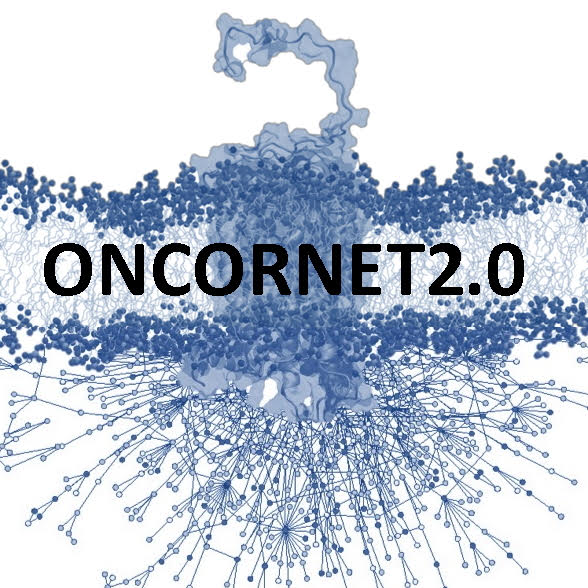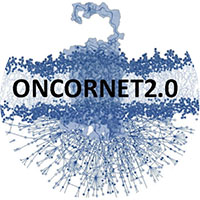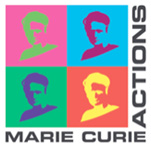A systems biology approach to analyse signalling and trafficking patterns of CXCR4 and ACKR3
Early stage researcher 12 (ESR12) project
Supervision: Dr. Maria Waldhoer, Dr. Aurelien Rizk
Host: InterAx Biotech AG
I – Project proposal:
Aim:
- To assess the signalling and trafficking patterns of CXCR4 and ACKR3 using real time kinetic assays
- To design a systems biology mathematical model to derive novel kinetic parameters from the experimental data.
Methodology:
This project will focus on the use of Systems biology as a computational tool to integrate theoretical knowledge of signal transduction pathways with experimental data of CXCR4 and ACKR3 mediated signaling and trafficking events. As a result, deeper mechanistic insights into the dynamic cellular signaling systems activated by these receptors will be gained. Ligands will be tested in house using i) real-time kinetic signaling assays (cells expressing CXCR4 or ACKR3 and biosensors like EPAC for cAMP measurements or Calcium release assays) and ii) real-time internalization/recycling assays (TR-FRET based assays) and in the partner laboratories UNOTT and VUA (see below). Data obtained from these assays will provide the basis for optimizing a mathematical model (IAX Systems biology model) of the signaling map of CXCR4 and ACKR3 consisting of Ordinary Differential Equations (ODE). Such models will then help to gain a deeper understanding of how ligands activate and regulate these receptors and will be crucial for designing novel drugs targeting these important receptors.
Planned secondments:
University of Nottingham – Generate data using genetically-encoded biosensors for ERK, PKC (coll ESR11) and integrate into IAX Systems biology model
Vrije Universiteit Amsterdam – Integrate data derived with phospho/dimer mutant CRISPR/CAS cell lines (ESR10) into IAX Systems biology model
II – Requirement candidate:
Required diploma: MSc degree in a relevant biological area, as well as above-basic experience in programming. Candidates with degrees related to systems biology are particularly encouraged to apply.
Required expertise: For biology majors: mammalian cell culture. For computational majors: strong programming skills (ideally R and/or Matlab), formal training in statistics and numerical simulations of ODEs.
Recommended expertise: Biology majors: GPCR biology, Signal Transduction. Computational majors: modelling of dynamic biochemical networks using time-resolved data, numerical optimization techniques.
Key publications:
- Roth S., Kholodenko BN, Smit MJ, Bruggeman FJ (2015). G Protein-Coupled Receptor Signaling Networks from a Systems Perspective. Mol Pharmacol., 88(3): 604-16.
- Roth S., Bruggeman FJ (2014). A conformation-equilibrium model captures ligand-ligand interactions and ligand-baised signaling by G-protein coupled receptors. The FEBS Journal, 281(20): 4659-4671.
- Rizk A., Paul G., Incardona P., Bugarski M., Mansouri M., Niemann A., Ziegler U., Berger P;, Sbalzarini I.F. (2014). Segmentation and quantification of subcellular structures in fluorescence microscopy images using Squassh. Nature Protocols, 9(3), 586–596.
- Roed S.N., Wismann P., Underwood C.R., Kulahin N., Iversen H., Cappelen K.A., Schäffer L., Lehtonen J., Hecksher-Soerensen J., Secher A., Mathiesen J.M., Bräuner-Osborne H., Whistler J.L., Knudsen S.M., Waldhoer M. (2014). Real-time trafficking and signaling of the glucagon-like peptide-1 receptor. Mol Cell Endocrinol., 8.
For more information:
Dr. Maria Waldhoer – waldhoer@interaxbiotech.com
Application:
Please send your application to recruiting@interaxbiotech.com
Include in heading – ONCORNET2.0 application + ESR#
Follow us on
Contact details
Please contact us at:
e.v.langemeijer@vu.nl
ONCORNET Coordinator
Vrije Universiteit Amsterdam




